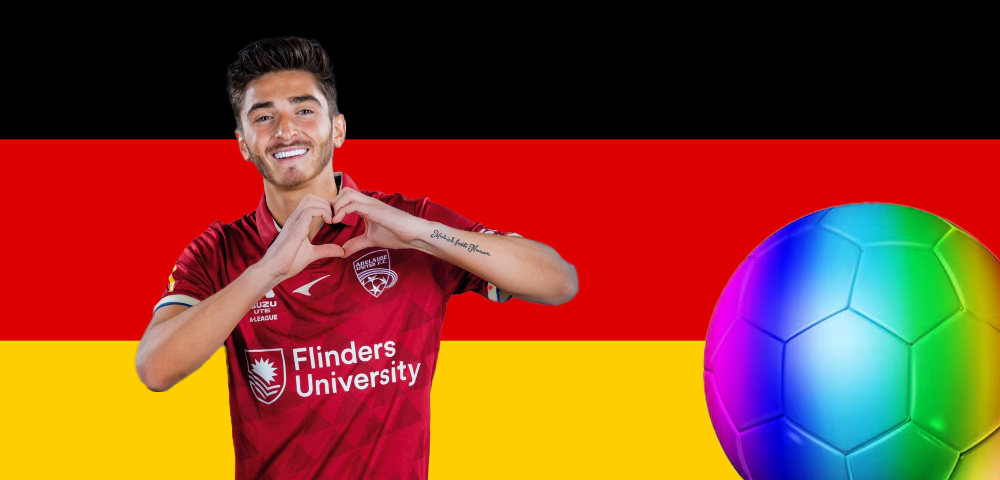
EU Court Rules Member Nations Must Recognise Same-Sex Parents And Their Children

The Court of Justice of the European Union, in a ruling being hailed as a “landmark,” has said that the “parent-child relationship,” of same-sex couples and their children must be given legal recognition across all of the 27 member nations.
The ruling on December 14 came in a case where a child born to same-sex parents was in danger of being left stateless after being refused a passport by several member states.
Child Refused Citizenship By UK, Bulgaria & Spain
Sara, was born in Spain in 2019 to a Bulgarian citizen and her Gibraltar-born partner. Sara’s mothers had moved to Spain in 2015 and married in 2019.
Sara was refused a Bulgarian birth certificate as Bulgarian law does not recognize same-sex marriages or legal partnerships.
Thanks to the ruling in the European Court of Justice, the 'Union of Equality' should become a step closer. Congratulations Bulgaria! 🇧🇬 https://t.co/nYU6tKrbMG
— EPOA • EuroPride (@EuroPride) December 16, 2021
Spain had issued a birth certificate to Sara which established a parent-child relationship, however Sara was not entitled to Spanish citizenship because neither of her mothers is Spanish. The UK refused citizenship because, under the British Nationality Act of 1981, citizenship cannot be transferred to the children of Gibraltar-born parents.
As a result, Sara was unable to leave Spain and her rights of access to healthcare, education were severely compromised.
‘Member States Must Recognise Parent-Child Relationship’
The court determined that Bulgaria should issue a passport based upon the pre-existing Spanish birth certificate.
“It is contrary to the fundamental rights guaranteed by Articles 7 and 24 of the Charter for the child to be deprived of the relationship with one of her parents when exercising her right of free movement or for her exercise of that right to be made impossible or excessively difficult on the ground that her parents are of the same sex,” the court said in a statement.
Read about today’s landmark judgement for Baby Sara’s family, and all rainbow families in Europe, and get the reaction of Sara’s parents 👉 https://t.co/zTYAuJrhNl pic.twitter.com/XTZfVDdaOn
— ILGA-Europe (@ILGAEurope) December 14, 2021
Member nations of the EU “are free to decide whether or not to allow marriage and parenthood for persons of the same sex under their national law,” however “Member States must recognise that parent-child relationship in order to enable [the child] to exercise, with each of her parents, her right of free movement.”
“The rights which nationals of member states enjoy under Article21(1) TFEU [EU treaty] include the right to lead a normal family life, together with their family members, both in their host member state and in the member state of which they are nationals when they return to the territory of that member state,” the court said.
The court also found that the recognition of same-sex families by one state “does not undermine the national identity or pose a threat to the public policy,” of another state who does not have legal same-sex marriage.
‘It Is Important For Us To Be A Family’
“We are thrilled about the decision and cannot wait to get Sara her documentation and finally be able to see our families after more than two years. It is important for us to be a family, not only in Spain but in any country in Europe and finally it might happen. This is a long-awaited step ahead for us but also a huge step for all LGBT families in Bulgaria and Europe,” the parents of Sara said in a statement to ILGA.
“We are very pleased with CJEU’s judgment this morning,” said Arpi Avetisyan, the Head of Litigation with LGBTQIA rights organisation, ILGA Europe.
“It gave legal endorsement to the EC President Ursula von der Leyen DL’s words, delivered during last year’s State of the Union address: ‘If you are a parent in one country, you are parent in every country’. The judgment has brought long-awaited clarification that parenthood established in one EU Member State cannot be discarded by another, under the pretence of protecting the ‘national identity.’”
“This is a true testament to the EU being a union of equality and we look forward to seeing rainbow families enjoying their right to freedom of movement and other fundamental rights on equal footing to anyone else. It is important that the judgment is implemented imminently, not only for baby Sara and her family, but also for other families facing similar struggles across the EU,” Avetisyan said.
In a 2018 ruling by the European Court of Justice, same-sex marriages of EU and non-EU citizens are required to be recognized by all EU member states, for matters of immigration.









